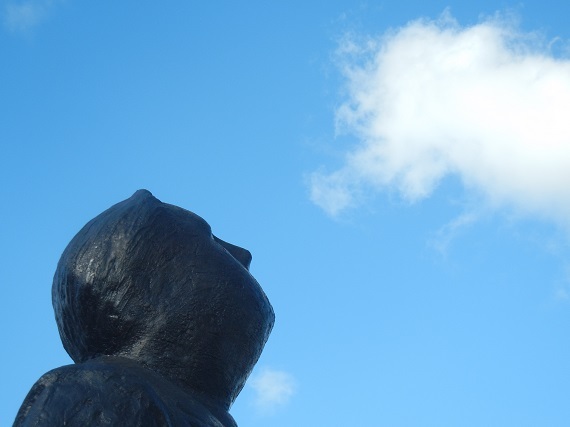If this statement sounds a bit odd to you, let me share with you the theme of the conference that took place last week in Cleveland, Ohio: "Flourish and Prosper." Organized by the Weatherhead School of Management at Case Western Reserve University, this was the third global forum that brought together over 600 executives, academics, NGOs and students.
Business as an agent of world benefit (BAWB) is a brainchild of Prof. David Cooperrider, author of the Appreciative Inquiry (AI) methodology that has provided help and hope to groups and organizations around the world as they seek to improve their organizational effectiveness. Appreciative Inquiry is based on the belief that we can make more progress to improve effectiveness if we focus on what is going well, on the strengths and assets of an individual and the group, rather than concentrating solely on analyzing the problems and challenges we face.
With a world providing daily reminders of what is not working, the concept behind "business as an agent of world benefit" is suggesting we should shift our attention to what IS working, what IS good and valuable, and build on those positive elements, behaviors and procedures. This approach is very similar to the Positive Psychology movement, which was championed by Martin Seligman as he became the president of the American Psychological Association, in 1998. Why have we concentrated on researching and teaching pathologies of human behavior? What if we would start studying happy individuals, healthy relationships, joyful lives? Without neglecting the importance of researching pathologies, we should equally learn from what is working well and perhaps we could replicate and improve it.
Certainly the idea of steering our attention to what we want, instead of focusing on what we want to avoid or get rid of, is not new. Buddhism teachings indicate that "on what you focus, grows." And we have all heard the warning of watching our thoughts because "they become words; words become actions, actions become habits, and habits become our destiny."
Listening to the news, we know we have many more challenges today than ever: climate change, poverty, health, financial crises, violence, you name it. But here is where this conference offered a radically different perspective. For all the challenges we see, there are thousands, millions of worthy initiatives that are bringing care, support, innovation, better products and services to the world. What if we focused on the positive events and the individual strengths, inspired by these stories, and created more of what we want to see? Isn't that what Martin Luther King was suggesting?
Columbia economist and founder of the Earth Institute Jeffrey Sachs famously opined, "We can be the generation to end world poverty," and several speakers at the conference stressed the importance of taking action. Barbara Snyder, president of Case Western University opened the event with these words: "Dream of what can be, and take the steps to make it happen." And Arianna Huffington insisted that we not wait for a leader: "Stare at the leader in the mirror," she suggested. Our problems, it seems, awaken in us a deep sense of caring, "a desire that is in all of us, and we have just to set the stage for it," observed Bart Houlahan, co-founder of the B-Corporation, a certifying organism that creates a new framework to do good and to do good business.
This desire is something that I have found also in my research, in daily classes with students and in meetings with executives. And when the younger people are involved -- with head, heart and hands -- the road is short: There is no time wasted. As an example, Erin, a high school participant at the conference, was quick to suggest an app that she could program herself, that could bring information, connect people and invite the users to vote on the best business initiatives. By "best" she meant those that are best shaping the world she wants to live in. Her input became a component for a new action plan taken on by a working team of the conference.
If you are in awe, that is good. "Awe is what moves us forward", says anthropologist Joseph Campbell.
